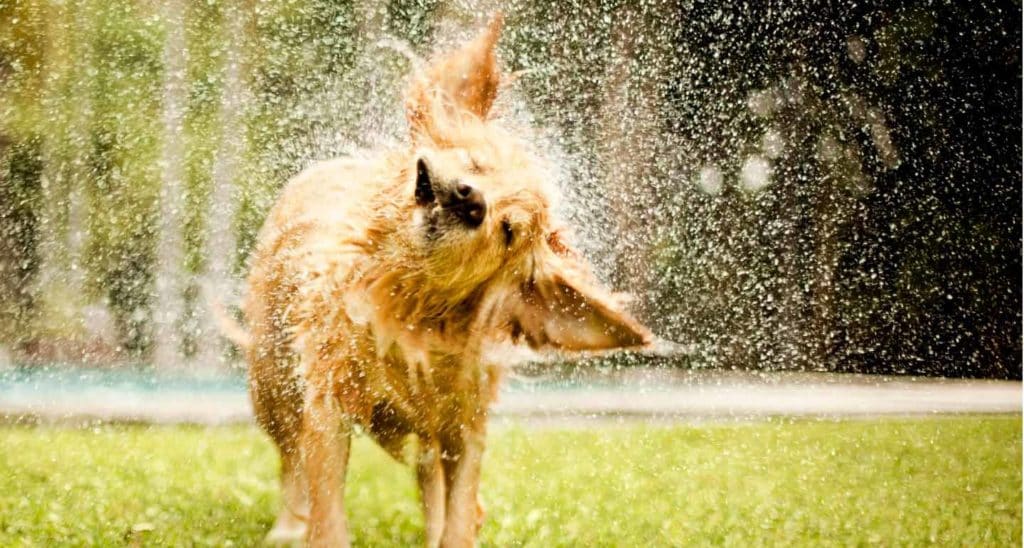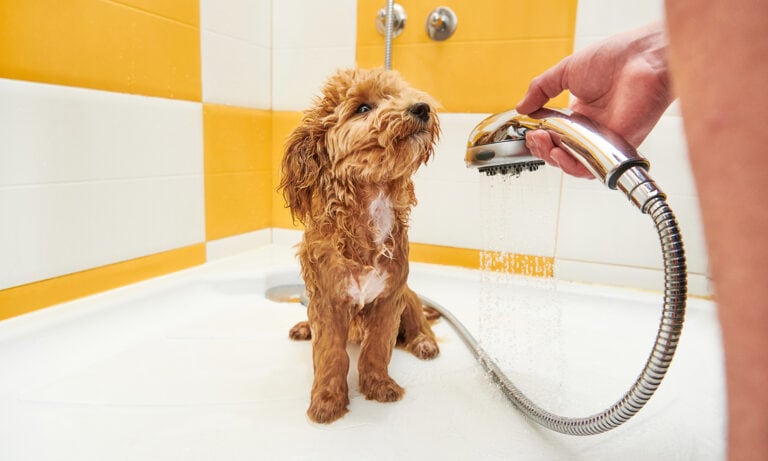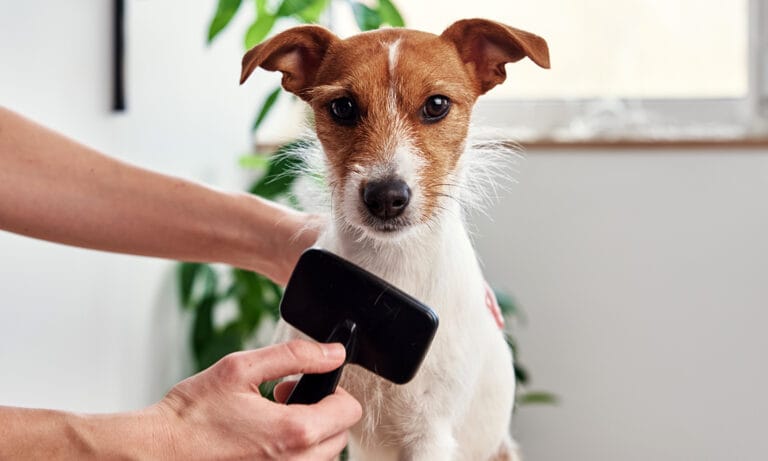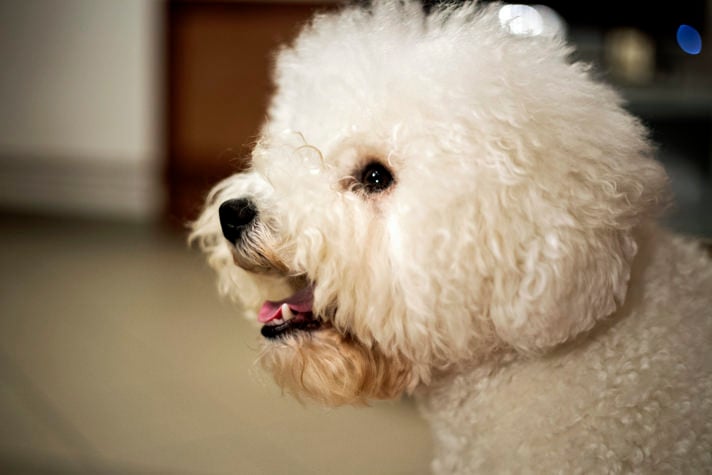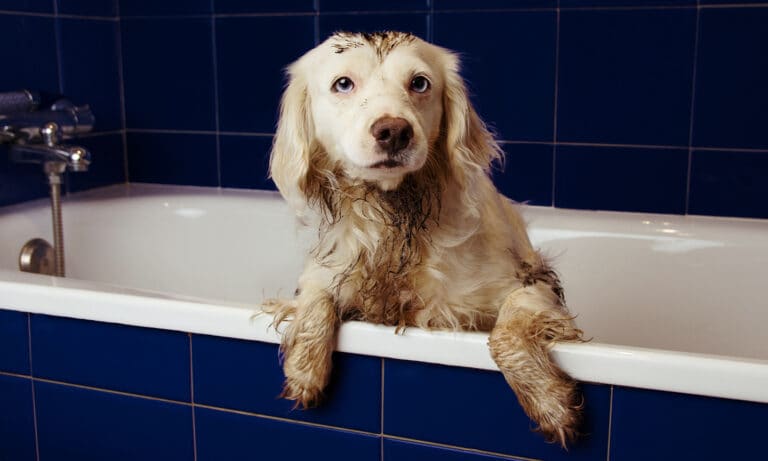There are few things more joyful than watching a dog play in a puddle or splash around in a pool on a hot summer day. But the smell—that stinky, wet dog smell—is not quite so pleasant for the majority of pet parents.
On their own, water and dogs don’t smell bad. Dogs have a distinct musk that’s not unpleasant to those of us who love them, and (clean) water doesn’t smell like much of anything. So why does the combination of the two lead to such an awful stench?
Wet Dog Smell: How it Happens
“All of us, including our dogs, have a population of microbes (bacteria, fungal organisms like yeast) that are found on the surface of our skin, as well as in other places like the gastrointestinal tract,” says Dr. Christine Cain, a veterinarian and assistant professor of dermatology at the University of Pennsylvania School of Veterinary Medicine. This collection of microorganisms is known as the “microbiome,” and it’s the source of the stink.
As they go about their lives, the microorganisms that live on a dog’s skin and hair produce waste in the form of various chemical compounds. Some of these smell bad on their own, while others aren’t offensive, but generally none of them are very noticeable when a dog is dry. But, as Dr. William Miller, a veterinarian and professor at Cornell University College of Veterinary Medicine, says, “Anything that changes the ecology of the skin can encourage these organisms to grow beyond their normal numbers.” Add water, and some of these little critters’ numbers will boom, and so will those of the compounds they create.
“Water also liberates these compounds from a dog’s skin and hair and accentuates the odor,” Cain says.
How to Stop Wet Dog Smell
You can’t evict your dog’s tiny tenants, and you wouldn’t want to. “The normal resident population [of microbes] of the skin is part of what keeps it healthy,” Cain says. You can do a little bit to prevent them from creating a stink, though.
“Bacteria and yeast do not thrive in dry environments, so the degree of wetness and the speed of drying are important considerations,” says Miller. “Dogs who dry quickly or don’t get soaking wet usually don’t develop that marked body odor.” He recommends trying to keep your dog from getting too wet by keeping them inside when it rains and not letting them go swimming. If that’s a non-starter for a pooch who loves to paddle or really has to go to the bathroom during a storm, Miller suggests keeping their hair short so it dries quickly. Cain points out there are also products that can help lessen or mask the smell, like scented dog-friendly shampoos, conditioners and sprays.
When Dog Smells Are Cause for Concern
While wet dog smell is unpleasant, it won’t do you or your pup any harm. However, there are doggy odors that pet owners should be more worried about. “Different skin diseases and infections can cause bad smells that are noticeably different than the wet dog smell,” says Miller. Other illnesses can make themselves known through bad breath and excessive flatulence. If your pooch smells funny and it’s not that classic wet dog funk, then you may want to talk to your vet. Before you do, though, check your dog’s collar.
“We have had a couple of patients present to the dermatology service for work-up of a foul odor of unknown origin and it has turned out to be an old stinky collar,” Cain says. “It’s important to remember that collars and harnesses should be cleaned and should be disposed of if they are old and soiled!”
Matt Soniak
Share:
